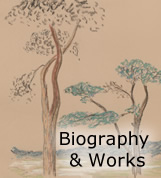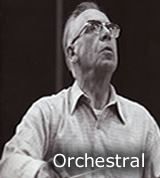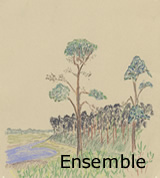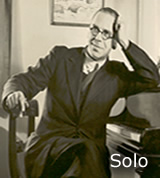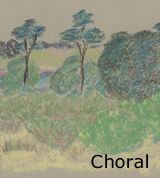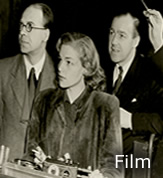Repertoire
Please use the picture links above to see his key works or alternatively click here to download a complete list.
Biography
William Alwyn was born in Northampton on the 7th November 1905, and died in Southwold Suffolk on 11th September 1985 just two months short of what would have been his eightieth birthday. He began his musical studies in 1920 aged just fifteen studying flute, piano, and composition at London’s Royal Academy of Music where in 1926, at the age of twenty-one, he was appointed Professor of Composition; a position that he was to retain for almost thirty years. During his long and prolific career Alwyn produced close to three hundred compositions that includes music in the majority of genres; opera, ballet, orchestral, chamber, instrumental and song. His major orchestral works include five symphonies, concertos for flute, oboe, violin, harp, and piano (two), a Sinfonietta for string orchestra, and three concerti grossi. In addition to this Alwyn contributed approximately two hundred scores for the cinema, seventy of which are feature films with the remainder being documentaries. He began his career in the documentary movement in 1936 and along with fellow British composer Benjamin Britten (1913-1976) became somewhat of a pioneer in this medium. In 1941 he wrote his first feature length score for Penn of Pennsylvania. Other notable film scores include the following: Desert Victory, The Way Ahead, The True Glory, Odd Man Out, The History Of Mr. Polly, The Rake’s Progress, The Fallen Idol, The Rocking Horse Winner, The Crimson Pirate, The Million Pound Note, The Winslow Boy, The Card, A Night To Remember, Carve Her Name With Pride etc. This dedication to the art of writing film music was recognized in 1951 when Alwyn was made a fellow of The British Film Academy, the only composer until more recent years to receive this honour. In addition to his work in the cinema, Alwyn also provided much incidental music for both radio and television.
He was also active in many administrative posts that include serving as Chairman for the Composers’ Guild of Great Britain, (for which he was instrumental in forming), for three terms in 1949, 1950 and 1954; a Director of the Mechanical Copyright Protection Society, a Vice-President of the Society for the Promotion of New Music (S.P.N.M.) and Director of the Performing Right Society. Also, for many years he was one of the panel reading new scores for the BBC. In 1948 Alwyn was elected to membership of the Savile Club. During the 1950’s his music was championed by the conductor, Sir John Barbirolli (1899-1970), who gave many first performances of Alwyn’s works amongst which are Symphonies nos. 1 (dedicated to Barbirolli), 2 & 4.
Alwyn spent the last twenty-five years of his life in the Suffolk village of Blythburgh, where, in those tranquil surroundings, he found the necessary inspiration to compose two operas, Juan, or the Libertine in four acts to his own libretto and Miss Julie in two acts after the play by August Strindberg. In addition to chamber and vocal music, he composed his last major orchestral works there: the Concerto Grosso No.3, commissioned as a tribute to Sir Henry Wood to mark the twentieth anniversary of his death in 1964 and first performed at the Proms that year by the BBC Symphony Orchestra conducted by the Composer; the Sinfonietta for String Orchestra in 1970 and the Symphony No.5 ‘Hydriotaphia’ during 1972-73. In 1978 Alwyn was awarded a CBE in recognition of his services to music. Such was his desire to always be creative that when not composing music he spent his time painting and writing. Amongst his writings is a short autobiography entitled Winged Chariot some poetry and prose, and perhaps most fascinating of all, a diary that he kept between September 1955 and August 1956 whilst composing his Third Symphony entitled Ariel to Miranda, that documents his daily routine, composing for the cinema and concert hall.
© Andrew Knowles 2012

